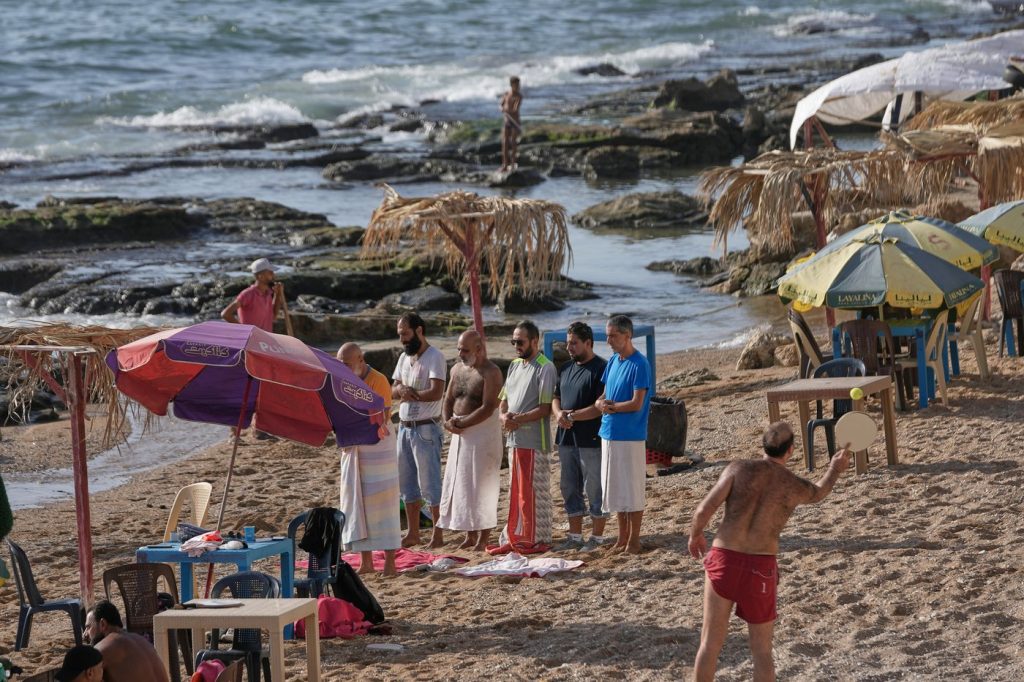SYRIA (AP) — In the lead-up to Syria's first parliamentary elections following the ouster of former President Bashar Assad, the country's religious and ethnic minorities exhibited a divide in their participation. While some chose to engage in the elections, preliminary results indicate that few were able to break into the country’s emerging political framework.
Latakia, a picturesque city on the Mediterranean coast known for its tourism, also served as a historical stronghold for the Assad family, which ruled Syria for half a century. This region is predominantly inhabited by the Alawite sect, an offshoot of Shiite Islam, to which the Assads belong. Following Assad's removal from power in December amidst a Sunni Islamist-led insurgency, Alawite communities faced a significant reversal, as the military—of which many Alawites were a part—collapsed and the new authorities executed purges in government agencies, particularly targeting Alawite employees.
In March, armed groups loyal to Assad initiated attacks against the new security forces in the coastal area, leading to sectarian violence where pro-government fighters were reported to have killed hundreds of Alawite civilians. Despite subsequent stabilization in the security situation, Alawites in Latakia remain cautious in their relationship with the new authorities.
During the elections, Reem Kahila, a young pharmacist and one of the few Alawite candidates, expressed her belief in the importance of participating, stating, “In the end, we are a component among the components of Syria.” However, Nasser Said, a 65-year-old former opposition activist who spent 14 years in prison, faced backlash from his own community for running in the election. His concerns were exacerbated by the recent assassination of an Alawite candidate, Haydar Shaheen, which some believed was carried out by pro-Assad militants.
Adham al-Qaq, a Druze candidate from Jaramana, shared similar sentiments, stating his decision to run alienated several neighbors who viewed his participation as a betrayal. The Druze community has been embroiled in violence in the southern province of Sweida, where clashes between armed Druze groups and local Bedouin clans resulted in the loss of many lives. The Druze in Sweida have since begun calling for greater autonomy or even secession from Syria, compounding the pressures felt by al-Qaq, who argued for the need for Druze participation in building a state.
In contrast, Marwan Zaghib, a Christian candidate also from Jaramana, remained skeptical about the legitimacy of the elections, pointing out that they were not “something you could call real elections.” This election involved a dual approach: two-thirds of the seats were to be filled by electoral votes while the remaining third would be appointed by President Ahmad al-Sharaa, who led the offensive against Assad.
Meanwhile, Kurdish candidates in Afrin faced a unique set of challenges. Afrin had been seized by Turkish forces and Syrian opposition fighters in 2018, which led to widespread displacement of Kurdish civilians. Many Kurds remaining in Afrin reported facing discrimination, yet some, like Rankin Abdo, a Kurdish doctor, believed in the need to participate in governance to advocate for better conditions for the Kurdish community. Abdo declared that boycotting decision-making processes would yield no results and that constructive dialogue was essential.
As the elections proceeded, awareness among Latakia residents was low; few were even aware that voting was taking place. Many exhibited skepticism towards this electoral process. Ultimately, all three seats in Latakia city went to Sunni candidates, with both Druze and Christian candidates from Jaramana failing to secure seats. Only a handful of women and minorities managed to win positions across the country, with preliminary results indicating an Alawite candidate from Baniyas and Abdo, along with two other Kurds, achieving electoral victories.
Zaghib expressed hope that al-Sharaa would appoint representatives across various communities to ensure genuine participation in the parliament. Similarly, Jamal Mkaiss, one of the newly elected candidates in Latakia, emphasized a commitment to defend all marginalized groups, while Said, the Alawite candidate, took his defeat in stride, noting that the journey toward political inclusion was just beginning.











